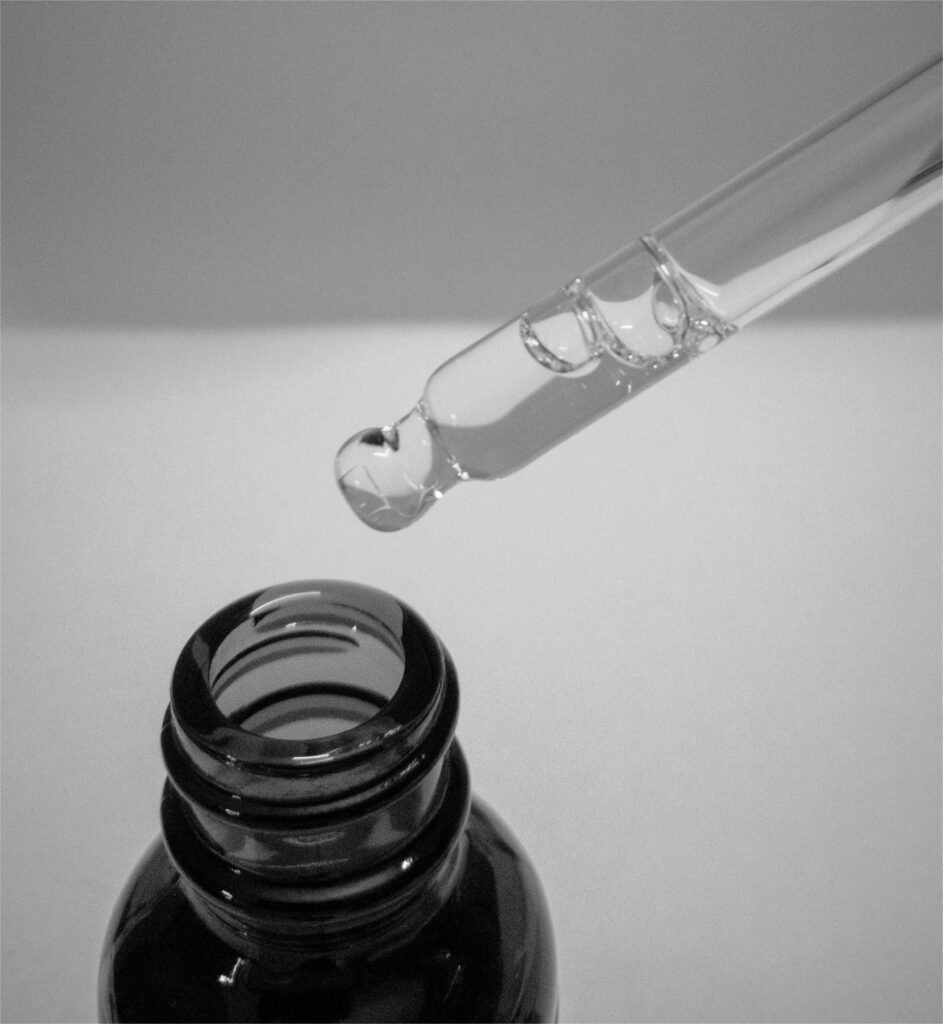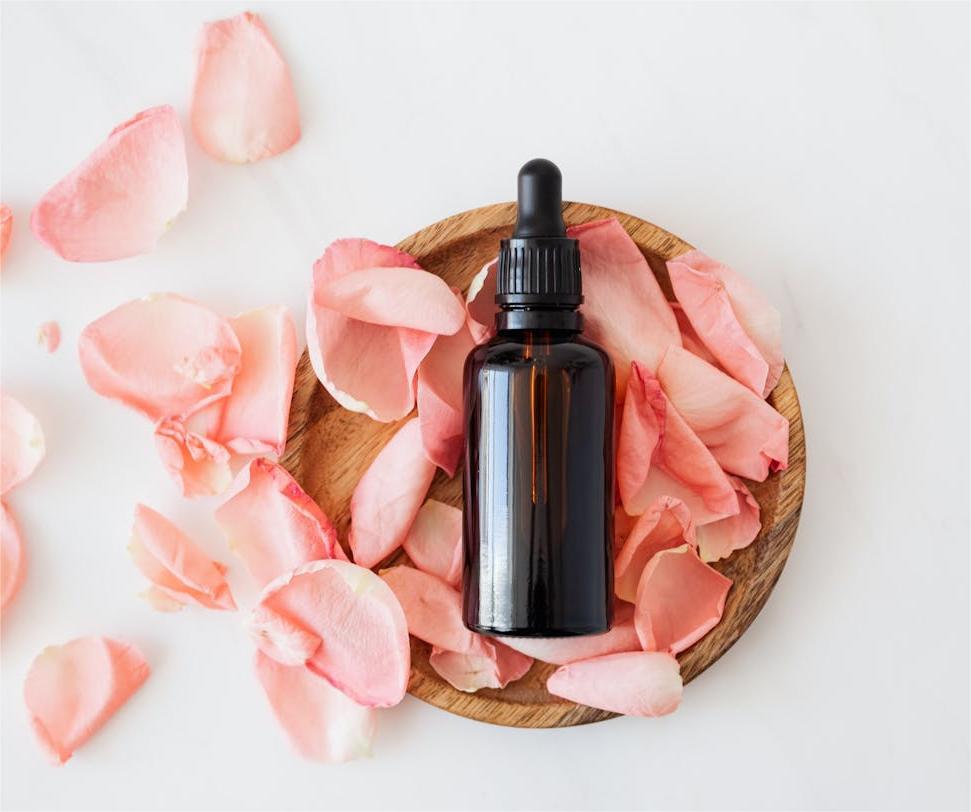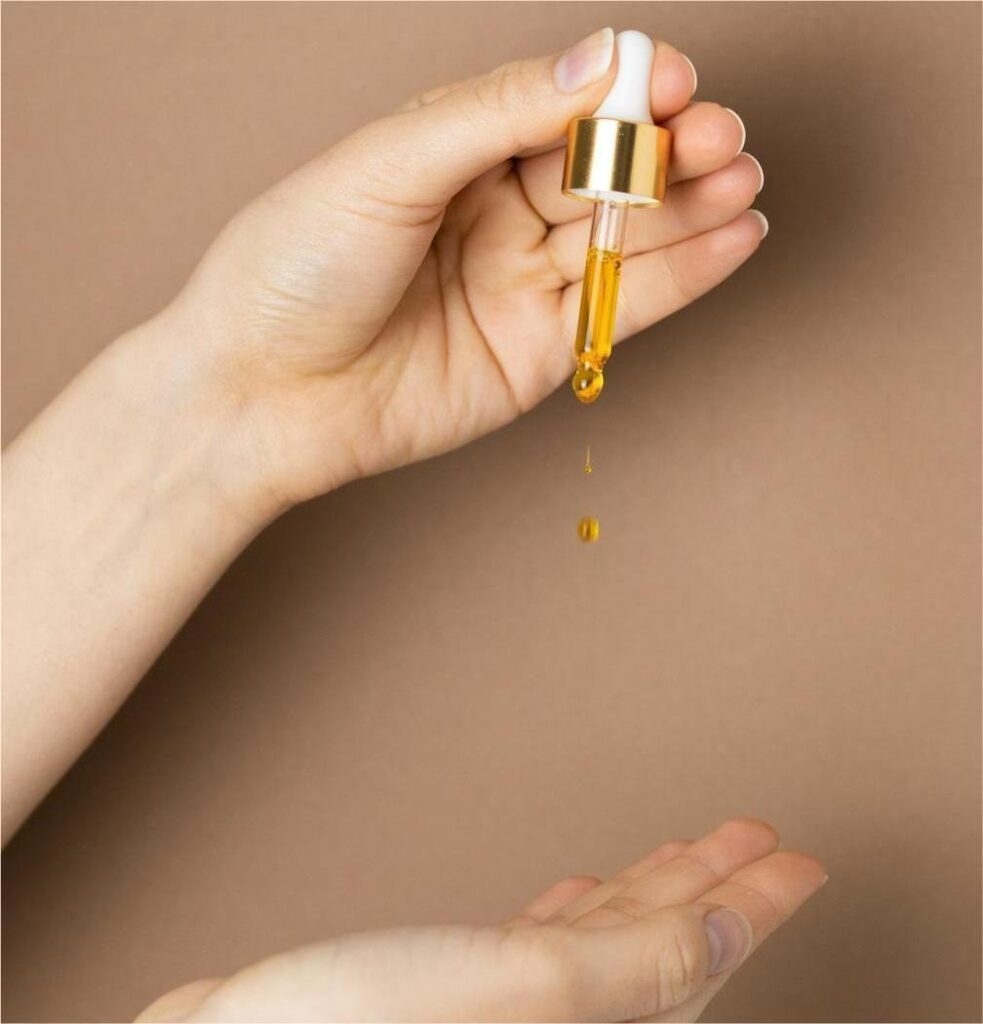- Introduction
- Vitamin C Overview
- Foods Containing Vitamin C
- Symptoms of Vitamin C Deficiency
- Effect of Vitamin C Deficiency
- Benefits of Vitamin C for Skin
- Types of Vitamin C
- Vitamin C Ingredients list in skincare products:
- Vitamin C in Skincare Products
- Does Vitamin C Serum Trigger Allergies?
- What is Vitamin C Serum?
- How to Use Vitamin C Serum?
- When is the Right Age to Start Using Vitamin C Serum?
- How Does Vitamin C Interact with UV Exposure?
- How to incorporate Vitamin C into your skincare routine?
- When should you use vitamin C on the skin?
- Choose vitamin C strength
- Vitamin C for dry skin: Vitamin C Boost
- Vitamin C for oily skin: Vitamin C Serum
- How to use vitamin C on the face?
- Combination of Vitamin C with other ingredients
- Bottom Line
Introduction
Skin health is important for almost everyone and people do everything they can to improve their skin health. Our skin, one of our most valuable organs, is defined as the body system most affected by external factors. For the skin structure to become resistant to external factors, vitamin and mineral support must be provided regularly. In this article we will let you know the the benefits of vitamin C for skin health, offering practical tips on how to use it effectively, and highlighting the best vitamin C products to help you achieve a glowing, youthful appearance.
Vitamin C Overview
Vitamin C is a water-soluble vitamin. For this reason, it cannot be stored in the body. Vitamin C, which the body does not need, is excreted through urine. The human body only keeps a small reserve of water-soluble vitamins. The immune system in particular is damaged when there is a vitamin C deficiency, and therefore the body becomes vulnerable to diseases. Consuming foods containing vitamin C helps the skin to be more resistant to wounds and trauma. Vitamin C also has a healing effect and is used extensively in skincare products.
Foods Containing Vitamin C
All foods that are rich in vitamins and increase the body’s resistance level help the development of body systems and prevent diseases. Blood vessels, muscle groups, bone marrow, and many other systems produce collagen with the support of vitamin C. Natural foods, especially those containing vitamin C, have helped people gain resistance to diseases. Foods rich in vitamin C are listed as follows:
- Melon
- Kiwi
- Orange
- Mandarin
- Grapefruit
- Pomegranate
- Tomatoes
- Broccoli
- Red and green peppers
- Cabbage
- Strawberry
- Lemon
- Guava
- Spinach
- Tangerine
Symptoms of Vitamin C Deficiency
- A bumpy skin appearance may occur
- Hair breakage
- Bright red colors of hair follicles
- Dry, damaged skin
- Slow-healing wounds
- Easy bruising on the skin
- Gum bleeding

Effect of Vitamin C Deficiency
Vitamin C deficiency occurs due to low consumption of foods containing vitamin C. In particular, decreased fruit consumption causes the synthesis of vitamin C to disappear. Since body systems cannot produce vitamin C on their own, it is necessary to take regular vitamin C supplements. Regular consumption of foods containing plenty of ascorbic acid helps prevent diseases caused by vitamin deficiency. Diseases that can occur due to vitamin C deficiency are as follows:
- Bronchitis
- Sinusitis
- Anemia
- Gum diseases
- Scurvy
- Respiratory diseases
- Common cold
- Allergy
- Influenza
- Cold
Benefits of Vitamin C for Skin
- It successfully fights the oxidative process: under the influence of oxygen (its free radicals), cells are destroyed, which leads to premature aging of the skin, loss of elasticity, and flexibility.
- Vitamin C boosts collagen and elastin production in the skin. Collagen and Elastin (connective tissue proteins) are found naturally in the skin and are what makes the skin firm, elastic, and resilient.
- Vitamin C protects against the sun. The sun reduces the amount of vitamin C in the skin and vitamin C should be added under your sunscreen, because vitamin C strengthens the skin’s defenses. It helps restore skin moisture and elasticity after sun exposure. At the same time, it does not irritate the skin.
- Reduces the appearance of rosacea and couperose.
- Creates an even, beautiful skin tone.
- Strengthens the skin’s natural protective functions, helping to restore the lipid barrier.
- Vitamin C counteracts pigment spots, by inhibiting an enzyme, which is responsible for the formation of the pigment (melanin). Vitamin C can be used both to lighten pigment spots you have already got, or to prevent pigmentation and aging in the skin.
- Vitamin C has a lightening effect on the color of scars.
- Vitamin C gives the skin more glow and shine and has a rejuvenating effect because young skin is naturally more shiny than mature skin.
- Vitamin C is very good for the skin after sun exposure. After sunbathing, the skin gets an extra layer of dead skin cells and becomes thicker, and then the skin can quickly become dull. Vitamin C gives life to the skin and thus more glow.
- Vitamin C is an antioxidant, which together with vitamin E helps to neutralize attacks against the body that can damage cells, proteins, and genetic material.
- Vitamin C can used to treat and reduce pimples, acne scars, melasma.
Types of Vitamin C
In skin care, Vitamin C has many names:
- Ascorbic acid
- Ascorbyl phosphate
- Ascorbyl Palmitate
- Ascorbyl glucoside
Vitamin C Ingredients list in skincare products:
- Ascorbic acid: A biologically active form of vitamin C.
- L-ascorbic acid: This is vitamin C in its purest form. Water-soluble, the most active and powerful form, but also the most unstable, as it oxidizes quickly. The pH of the product must be low for the component to penetrate the skin.
- Ethyl Ascorbic Acid: A derivative of ascorbic acid, a stable and highly active form.
- Ascorbyl-6-palmitate: It has a mild and less aggressive effect.
- Tetrahexyldecyl Ascorbate: A fat-soluble, highly stable form that is suitable even for sensitive skin as it acts gently.
- Magnesium Ascorbyl Phosphate: A more stable form but weaker in effect, ideal for sensitive skin.
- Caprylyl 2-Glyceryl Ascorbate: Fat-soluble, stable form.
- Sodium ascorbyl phosphate: It has a similar effect to magnesium ascorbyl phosphate, effective in the treatment of acne.
Vitamin C in Skincare Products
There are many products out there that contain vitamin C. Vitamin C is used and sold in many different forms that are more or less effective depending on the concentration, storage, and type. It is important to know the difference between these so that you use vitamin C which affects the skin at all. Other types of ingredients that work well with vitamin C include green tea and Vitamin A. The products should be delivered in UV-protected packaging.
Does Vitamin C Serum Trigger Allergies?
Some people may react to Vitamin C, like other ingredients in skin care products. If you react to a product with Vitamin C, look for the type of Vitamin C used in the product. It is not certain that you will react to other types of Vitamin C.
After applying a product with vitamin C, you may feel a slight tingling and redness of the skin: if they go away on their own soon, you can continue using it. If tingling and redness are accompanied by peeling and itching, this indicates individual intolerance. In this case, it is better to seek advice from a certified dermatologist

What is Vitamin C Serum?
Vitamin C serum is applied as a supplement when sufficient vitamin C is not provided from foods. The variety of products of vitamin C serum depends on its content. Since there are many brands, the vitamin C serum to be purchased should contain all the ingredients the skin needs. It is possible to learn this by checking its content. Since brands already specify the contents of their products in detail, choosing the best vitamin C serum will be quite easy.
How to Use Vitamin C Serum?
Vitamin C serum should be considered as a part of daily care and should be applied without interrupting the routine. It should be applied to clean skin twice a day, morning and evening, by massaging. It should be used before applying moisturizer but after toner. Vitamin C serum should be applied to the skin in a thin layer. It is possible to see its effect in the shortest time with regular use.
When is the Right Age to Start Using Vitamin C Serum?
Vitamin C serum is ideal for people between the ages of 30 and 35 as a special care product with high antioxidant properties and a rich vitamin source. People with more mature skin can use these serums after getting approval from a skin specialist. Within the scope of vitamin C serum recommendations, it is recommended that you choose skin care products that protect your skin health and minimize the signs of aging.
How Does Vitamin C Interact with UV Exposure?
There are many misconceptions about the compatibility and mutual influence of vitamin C and ultraviolet radiation. On the one hand, this component can protect and neutralize the negative effects of sun exposure, but on the other hand, active sun protection is recommended during use.
There is no contradiction here. Vitamin C does increase the risk of developing hyperpigmentation with prolonged exposure to active sun, so it is recommended to apply sunscreens with a high SPF during use. But after sunbathing or a beach holiday, this component is very useful – it affects the synthesis of melanin, reducing the likelihood of hyperpigmentation.
How to incorporate Vitamin C into your skincare routine?
While there are many skincare ingredients out there that can be irritating to the skin (like retinol) and tend to require a gradual introduction into your skin care regimen, vitamin C doesn’t require quite as much vigilance. That being said, it is still recommended to start using the vitamin C product a few times a week at first to see how it affects your skin.
When should you use vitamin C on the skin?
Some skincare ingredients should only be used at night, Vitamin C is an ingredient that can be used both day and night. It is usually recommended to be used during the day because of the way it protects the skin from free radicals, pollution, and UV rays – everything your skin encounters during the day. Generally, the best way to use vitamin C is by applying a few drops to freshly cleansed skin, followed by a moisturizer and SPF. If you prefer to apply vitamin C at night as part of your facial care routine, your skin will absorb the nutrients while it rests and can help boost natural skin cell renewal.

Choose vitamin C strength
Determining the ideal strength for your skin type is critical to the effectiveness of your vitamin C product. Generally, it is recommended that those new to vitamin C start with a low concentration of 10% and increase as the skin tolerates it well.
For oily or normal skin types, L-ascorbic acid is the most concentrated form of vitamin C and may be the most effective, while for dry and sensitive skin, magnesium ascorbyl phosphate, which is a water-soluble vitamin C, is less likely to irritate.
Vitamin C for dry skin: Vitamin C Boost
If your skin is constantly looking dull and dehydrated, this water-activated powder treatment uses stable vitamin C and hyaluronic acid to quench your pores’ thirst while brightening and smoothing your skin. This boost has a powerful dose of stable vitamin C, which is formulated to drastically increase the skin’s glow while reducing the appearance of dark spots. While the pH-balanced formula promotes a brighter complexion, it also supports collagen and elastin production for skin that’s firm, soft, and supple.
Vitamin C for oily skin: Vitamin C Serum
When you have oily skin, you need a vitamin C product that isn’t greasy but still moisturizes. This lightweight, stabilized Vitamin C serum uses a base of lightweight, soothing aloe gel, while Vitamin C brightens skin tone and promotes collagen production.

How to use vitamin C on the face?
Ideally, apply your vitamin C product after cleansing and once you have made sure that you do not have any allergies or irritation to the active ingredient. Then apply the product and let it sit for a few minutes until it is fully absorbed. Finally, since vitamin C can make the skin more sensitive to sunlight, it is essential to use sunscreen daily to protect your skin from UV damage. Discover our facial treatments with sun protection and include them in a single step of your routine!
Combination of Vitamin C with other ingredients
Hyaluronic Acid and Vitamin C
Known for its moisturizing properties and light consistency, Hyaluronic Acid is a fantastic ingredient for hydrating the skin. Combined with Vitamin C, you will be able to reduce the signs of aging and brighten the skin, giving your skin an extra youthful and good-looking glow.
Retinol and Vitamin C
Retinol and Vitamin C can produce great benefits for the skin, as the combination of both is capable of reducing some signs of aging. However, they are two ingredients with different pH, so caution must be taken when combining them. If you want to get the benefits of both ingredients, choose a product that has been specially formulated to contain Retinol and Vitamin C.
Niacinamide and Vitamin C
Niacinamide is known for its easy combination with other ingredients, meaning it doesn’t usually cause adverse reactions. Using Niacinamide and Vitamin C for the face together can boost their benefits, improving skin softness and hyperpigmentation.
Bottom Line
Vitamin C is complicated to add to skin care products. It is an unstable vitamin that easily “seems finished” before you get it on the skin. In that case, there is no point in investing in it. But when it is used in the right way in the skin care product, it gives a wonderful glow and protection to your skin. Choosing the perfect strength is somehow difficult to find. Despite the instability issue of this supercharged antioxidant, it is a must-have skincare product in shelve. By choosing the right products and following a consistent routine, you can enjoy the glowing and radiant skin that vitamin C promises.


